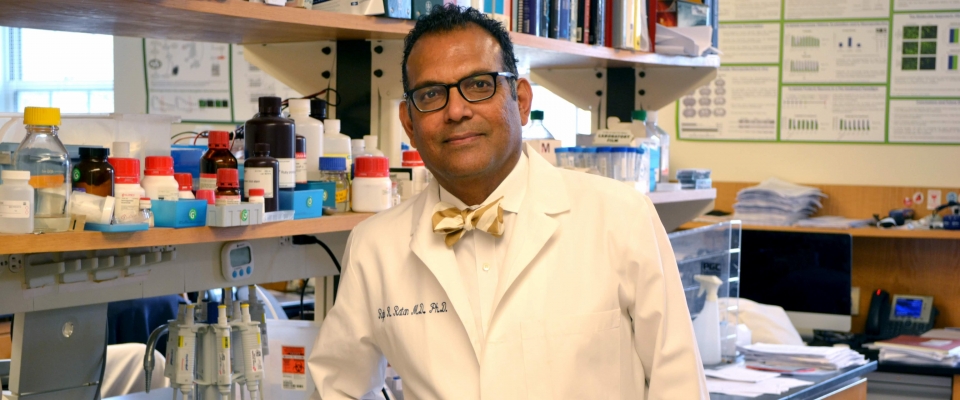You are here

Dr. Ratan Elected to Be Inducted into the John Hopkins Society of Scholars
Johns Hopkins University announced with great honor to induct Dr. Raj R. Ratan, executive director of Burke Neurological Institute, into the John Hopkins Society of Scholars. Created and approved in 1967 by the University’s Board of Trustee, the Society of Scholars—the first of its kind in the nation—honors individuals who completed their graduate, postdoctoral, professional, or performance training at Johns Hopkins but are not currently affiliated, and who have achieved marked professional or scholarly distinction in their fields. Each year, the Society of Scholars Selection Committee elects a limited number of scholars, artists, and scientists who spent a portion of their careers at Johns Hopkins from among the candidates nominated by Johns Hopkins University faculty.
Dr. Ratan’s peer nomination and election was based on his training at Johns Hopkins leading to his present leadership at the Burke Neurological Institute. In 1991 to 1992, Dr. Ratan was a Neurology resident and then Chief Resident in Neurology at Johns Hopkins. He was awarded the Jay Slotkin Award for excellence in research while a resident; and subsequently received the Passano Foundation Clinician Scientist Award while completing a fellowship in Neurorehabilitation and a post-doc in the Department of Neuroscience at Hopkins. In 1994, he was promoted to Assistant Professor of Neurology and Rehab Medicine at Hopkins and he started his own lab with the help of his post-doc mentor, Jay Baraban.
Presently, at the Burke Neurological Institute, Dr. Ratan's scientific efforts have been primarily focused on understanding how neurons respond to physiological stresses, particularly oxidative stress, adaptively and maladaptively at a transcriptional level, and how the balance of these activities leads to neuronal death and impairment, or cell survival and recovery or resistance. During his career, he has published over 160 articles and has edited and contributed chapters to several books. He has received research grants from National Institutes of Health, The New York Department of Health, Dana Foundation and The Thomas Hartman Foundation among other international foundations. Ratan's studies have identified novel transcriptional and epigenetic strategies for limiting neuronal cell death which have identified novel small molecule approach which have been validated in numerous neurological disease models.
In April a ceremony will be held at John Hopkins University to honor newly elected members and formally inducted members into the Society of Scholars. Faculty members will invest inductees with the Johns Hopkins Society of Scholars medallion and present them with an official certificate of membership. Since its inception in 1967 and until 2019, 688 individuals have been elected to membership in the society.

